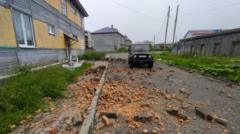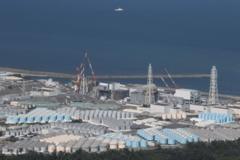The situation in Lashio, Myanmar, has unveiled a complex interplay of military and political power struggles, where rebellious factions are grappling with significant external pressures.
# China’s Influence Forces Myanmar Rebels to Relinquish Territory

# China’s Influence Forces Myanmar Rebels to Relinquish Territory
Recent developments in Myanmar reveal China's intervention compelled rebel forces to cede captured territory, altering the dynamics in the ongoing civil war.
In a dramatic shift, the rebels who had successfully captured the city of Lashio in August have now retreated, surrendering the city back to the military junta without firing a shot. This decision came sharply after a robust intervention by China, which exerted economic and operational pressures to safeguard its investments in Myanmar.
The conflict in Myanmar has seen multiple rebel factions come together, effectively seizing control of strategic locations like Lashio, located 75 miles from the Chinese border. This initial victory saw intense confrontations where over 500 rebel fighters lost their lives while they assaulted a key military command center.
However, the subsequent retreat in late April was facilitated by China's strategic maneuvers, which included blocking border trade routes, halting power and internet supply to nearby towns, and allegedly detaining a rebel commander. The intervention highlights Beijing’s vested interests in maintaining stability in Myanmar to protect extensive economic investments, including critical energy pipelines and infrastructure linked to the Belt and Road Initiative.
Ni Ni Kyaw, spokesperson for the People’s Liberation Army, characterized China’s actions as direct interference contrasting their public stance of non-involvement in Myanmar's internal matters, pointing out that China's motivations are self-serving.
Ultimately, the situation exemplifies how external forces like China can influence local conflicts significantly, reshaping the landscape for resistance forces as they strive to contend with both military and diplomatic pressures.
The conflict in Myanmar has seen multiple rebel factions come together, effectively seizing control of strategic locations like Lashio, located 75 miles from the Chinese border. This initial victory saw intense confrontations where over 500 rebel fighters lost their lives while they assaulted a key military command center.
However, the subsequent retreat in late April was facilitated by China's strategic maneuvers, which included blocking border trade routes, halting power and internet supply to nearby towns, and allegedly detaining a rebel commander. The intervention highlights Beijing’s vested interests in maintaining stability in Myanmar to protect extensive economic investments, including critical energy pipelines and infrastructure linked to the Belt and Road Initiative.
Ni Ni Kyaw, spokesperson for the People’s Liberation Army, characterized China’s actions as direct interference contrasting their public stance of non-involvement in Myanmar's internal matters, pointing out that China's motivations are self-serving.
Ultimately, the situation exemplifies how external forces like China can influence local conflicts significantly, reshaping the landscape for resistance forces as they strive to contend with both military and diplomatic pressures.



















